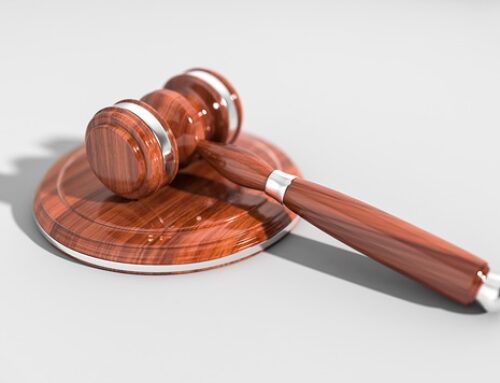Know Your Rights: Understanding Debt Collector Harassment and When to Take Legal Action
Debt collection can be a stressful and overwhelming experience, especially when debt collectors resort to tactics such as harassment and intimidation. While debt collectors have the right to pursue unpaid debts, they are also required to abide by certain rules and regulations. As a consumer, it is important to know your rights and understand what constitutes debt collector harassment. This knowledge can help you protect yourself from unfair and abusive practices, and take legal action if necessary. In this article, we will explore what debt collector harassment entails, how to identify it, and what actions you can take in response. Whether you’re currently dealing with debt collection or just want to be prepared for any future situations, this guide will provide you with valuable information and resources. So, let’s dive in and learn more about your rights as a consumer when it comes to debt collector harassment.
Understanding your rights as a debtor
Before we dive into the specifics of debt collector harassment, it’s important to understand your rights as a debtor. The Fair Debt Collection Practices Act (FDCPA) is a federal law that regulates the behavior of debt collectors and protects consumers from unfair and abusive practices. Under the FDCPA, debt collectors are prohibited from using deceptive, unfair, or abusive tactics to collect debts.
Some of your rights under the FDCPA include:
– The right to request verification of the debt
– The right to be free from harassment or abuse
– The right to be informed of your rights under the FDCPA
– The right to dispute the debt
– The right to sue a debt collector who violates the FDCPA
It’s important to note that these rights only apply to third-party debt collectors, not to creditors who are attempting to collect their own debts. If you’re unsure whether a debt collector is covered by the FDCPA, you can ask them directly or consult with an attorney.
Examples of debt collector harassment
Debt collector harassment can take many forms, and it’s not always easy to identify. Some examples of debt collector harassment include:
– Calling you repeatedly or at unreasonable hours
– Threatening violence or harm
– Using profanity or other abusive language
– Publishing your name on a “bad debt” list
– Contacting your employer, friends, or family members about your debt
– Falsely claiming to be a government representative or attorney
– Misrepresenting the amount or nature of the debt
If you experience any of these behaviors from a debt collector, it’s important to document them and take action to protect yourself.
How to document debt collector harassment
If you believe that a debt collector is harassing you, it’s important to document their behavior. This documentation can serve as evidence if you choose to take legal action against the debt collector.
Some tips for documenting debt collector harassment include:
– Keep a log of all phone calls and other communications from the debt collector, including the date, time, and nature of the communication.
– Save any voicemails, emails, or letters from the debt collector.
– If the debt collector uses abusive language or threatens violence, record the conversation if possible.
– Make note of any false statements or misrepresentations made by the debt collector.
It’s important to keep all of this documentation in a safe place, and to make copies if necessary.
When to take legal action against debt collectors
If you believe that a debt collector is harassing you, you have several options for taking legal action. One option is to file a complaint with the Consumer Financial Protection Bureau (CFPB). The CFPB will investigate your complaint and may take action against the debt collector if they find that they have violated the law.
Another option is to file a lawsuit against the debt collector. If you choose to go this route, it’s important to consult with an attorney who specializes in debt collector harassment cases. Your attorney can help you gather evidence, file the lawsuit, and represent you in court.
What to expect when filing a complaint against a debt collector
If you choose to file a complaint with the CFPB, there are several things you can expect. First, you will need to provide detailed information about the debt collector and their behavior. This information may include copies of your documentation, such as phone logs or voicemails.
Once you’ve filed your complaint, the CFPB will investigate the debt collector and may take legal action if they find that they have violated the law. This action may include fines or penalties, or even revocation of the debt collector’s license.
Legal options for stopping debt collector harassment
If you’re experiencing debt collector harassment, there are several legal options available to help you stop it. One option is to file a lawsuit against the debt collector. If you win your lawsuit, you may be awarded damages for any harm you suffered as a result of the harassment.
Another option is to seek an injunction against the debt collector. An injunction is a court order that requires the debt collector to stop harassing you. If the debt collector violates the injunction, they may be subject to fines or other penalties.
Choosing the right attorney for debt collector harassment cases
If you’re considering taking legal action against a debt collector, it’s important to choose the right attorney. Look for an attorney who specializes in debt collector harassment cases and has experience representing clients in similar situations.
Some questions to ask when choosing an attorney include:
– How many debt collector harassment cases have you handled?
– What is your success rate in these cases?
– How much experience do you have working with the FDCPA and other relevant laws?
By choosing the right attorney, you can increase your chances of success and protect yourself from further harassment.
How to protect yourself from future debt collector harassment
While it’s impossible to completely avoid debt collector harassment, there are steps you can take to protect yourself. Some tips for protecting yourself from debt collector harassment include:
– Know your rights under the FDCPA and other relevant laws.
– Keep detailed records of all communications with debt collectors.
– Be cautious about giving out personal information to debt collectors.
– Consider working with a debt settlement company or credit counseling agency to help you manage your debt.
– If you do communicate with debt collectors, do so in writing rather than over the phone.
By taking these steps, you can minimize your risk of future debt collector harassment and protect yourself from unfair and abusive practices.
Debt collector harassment can be a frightening and stressful experience. But as a consumer, you have rights and options for protecting yourself. By understanding what constitutes debt collector harassment, documenting any abusive behavior, and taking legal action if necessary, you can defend yourself from unfair practices and hold debt collectors accountable for their actions. If you’re currently dealing with debt collection or just want to be prepared for any future situations, remember to keep these tips in mind and consult with an attorney who specializes in debt collector harassment cases if necessary.
Ready to take control of your financial future?
Call Masters Credit today at 1-844-620-8796 and let us propel your credit score to new heights!
1-844-620-8796
Don’t miss out on our free online credit evaluation – discover the key to unlocking better opportunities and achieving your financial goals. Take the first step towards a brighter tomorrow by taking our evaluation now!
Take our free online credit evaluation today!
[wpi_designer_button slide_id=6350]
Note: The information on this website is for general purposes only and does not constitute financial or legal advice.






Leave A Comment